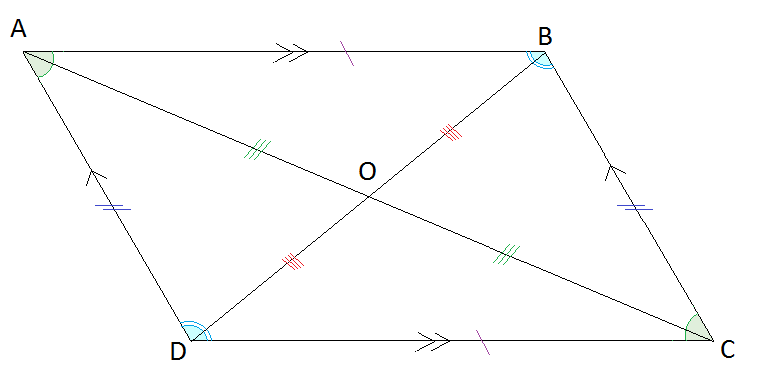Classification of 2D shapes
Regular
A regular polygon has all sides (and angles) equal length and size.
These are all regular polygons.

Irregular
An irregular polygon has some sides (and angles) of different lengths and sizes.
These are all irregular polygons.

The word polygon comes from the Greek poly - meaning many and gonos - meaning angles. So a polygon is a many angled figure.
With many angles comes many sides, in fact, every 2D straight-sided shape has the same number of angles as sides.
Convex or concave
Let's have a look at convex shapes first:

Here are some concave shapes:

A convex shape can be identified through two key elements:
- When drawing a line between any two vertices that the entire line is always contained inside the shape.
- There is no angle greater than $180$180 degrees, (no reflex angles)
Practice question
Question 1
Which of the following shapes are concave/non-convex?
 A
A B
B C
C D
D E
E F
F
Naming 2D shapes
Different sided figures have names that describe the number of angles and sides.








Sum of interior and exterior angles of 2D shapes
|
Angle sum of an $n$n-sided polygon is $\left(n-2\right)\times180$(n−2)×180 degrees The angles inside a quadrilateral will add up to $\left(4-2\right)\times180=360$(4−2)×180=360 degrees The angles inside a hexagon will add up to $\left(6-2\right)\times180=720$(6−2)×180=720 degrees The angles inside an octagon will add up to $\left(8-2\right)\times180=1080$(8−2)×180=1080 degrees |
 |
|
Sum of exterior angles of any polygon is $360^\circ$360°
|
 |
Practice questions
Question 2
Neil claims to have drawn a regular polygon with each exterior angle equal to $45^\circ$45°.
First find $n$n, the number of sides of such a polygon.
Hence what type of shapes is this ?
Octagon
ANonagon
BDecagon
CHexagon
DThis shape cannot exist
EHeptagon
F
Question 3
Consider the adjacent quadrilateral.

Find the value of the angle marked $x$x.
Find the value of the angle marked $a$a.
Find the value of the angle marked $b$b.
Find the value of the angle marked $c$c.
Find the value of the angle marked $d$d.
The sum of exterior angles in a quadrilateral is $\editable{}$°
Triangles
Triangles are three-sided shapes and have the following properties:
| Angle sum of a triangle is $180^\circ$180° |  |
| Base angles are equal in an isosceles triangle
Sides opposite base angles are equal in an isosceles triangle |
 |
| All angles in an equilateral triangles are equal
All angles in an equilateral triangle are equal to $60^\circ$60° All sides in an equilateral triangle are equal |
 |
Practice question
Question 4
Based on the length of the sides, choose the most appropriate classification for the triangles as scalene, isosceles, or equilateral.

A triangle with its dimensions labeled. The first side measures $10$10 cm, the second side measures $12$12 cm, and the third side measures $8$8 cm. Isosceles
AEquilateral
BScalene
C
An obtuse triangle with its dimensions labeled. The first and second side measures $7$7 cm, and the third side measures $9$9 cm. Isosceles
AScalene
BEquilateral
C
A right triangle with its dimensions labeled. The horizontal base of the triangle measures $12$12 cm. The vertical side measures $5$5 cm. And the hypotenuse measures $13$13 cm. Equilateral
AIsosceles
BScalene
C
A triangle with its dimensions labeled. All three sides are labeled to measure $10$10 m. Scalene
AEquilateral
BIsosceles
C
A triangle with its dimensions labeled. The first and second side measures $7$7 m, and the third side measures $9$9 m. Isosceles
AEquilateral
BScalene
C
A triangle with its dimensions labeled. All three sides are labeled to measure $7$7 m. Isosceles
AEquilateral
BScalene
C
Quadrilaterals
Quadrilaterals are four-sided shapes and have the following properties:
|
Angle sum of a quadrilateral is $360^\circ$360°.
|
 |

Parallelogram
- Opposite sides in a parallelogram are parallel
- Opposite angles in a parallelogram are equal
- Opposite sides in a parallelogram are equal
- Diagonals of a parallelogram bisect each other

Rectangle
- Opposite sides in a rectangle are parallel
- Opposite sides in a rectangle are equal
- Diagonals of a rectangle bisect each other
- Diagonals in a rectangle are equal

Square
- All sides of a square are equal
- Opposite sides in a square are parallel
- Diagonals of a square are perpendicular to each other (cross at $90^\circ$90°)
- Diagonals of a square bisect the angles at the vertices (makes them $45^\circ$45°)
- Diagonals of a square bisect each other
- Diagonals of a square are equal
Rhombus

- Opposite angles of a rhombus are equal
- Opposite sides in a rhombus are parallel
- All sides of a rhombus are equal
- Diagonals of a rhombus are perpendicular to each other
- Diagonals of a rhombus bisect corner angles
- Diagonals of a rhombus bisect each other

Trapezium
- A trapezium (trapezoid) has one pair of opposite sides parallel
- An isosceles trapezium (trapezoid) has $2$2 pairs of adjacent angles equal
- An isosceles trapezium (trapezoid) has one pair of opposites sides equal
- Diagonals of an isosceles trapezium (trapezoid) are equal
Kite

- A kite has $2$2 pairs of adjacent sides equal
- A kite has $1$1 pair of opposite angles equal
- The longest diagonal of a kite bisects the angles through which it passes
- Diagonals of a kite are perpendicular to each other
- The longest diagonal of a kite bisects the shorter diagonal
Practice questions
Question 5
Based on the length of each side, classify the following as a kite, rectangle or square.
Choose the most precise answer.

Rectangle
ASquare
BKite
C
Rectangle
AKite
BSquare
C
Square
AKite
BRectangle
C
Square
ARectangle
BKite
C
Kite
ASquare
BRectangle
C
Kite
ASquare
BRectangle
C
Question 6
Which of the following is true?
A square is a rhombus.
AA trapezium is a parallelogram.
BA parallelogram is a rectangle.
CA kite is a rhombus.
DA rhombus is a square.
E